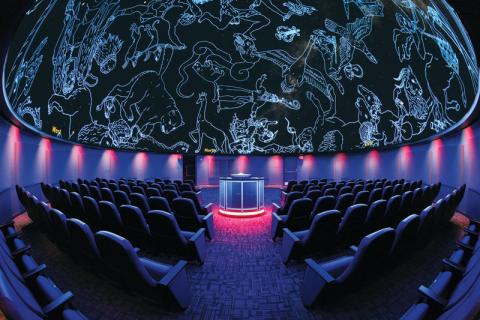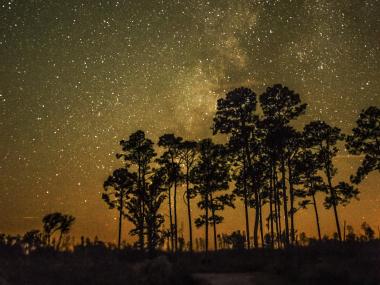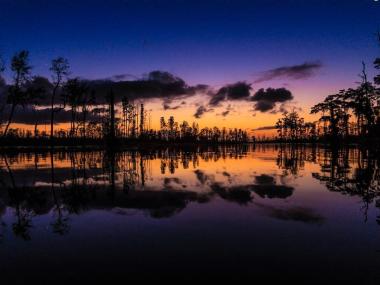Top Planetariums & Observatories in Georgia
When it comes to stargazing in Georgia, nothing is more magical than looking at the night sky with stars sparkling on a deep blue backdrop. Did you know you can get up close to these celestial bodies by viewing them through high-powered telescopes?
Here are seven of the best places to stargaze in Georgia, including favorite observatories, planetariums and more. As a bonus, many are free.
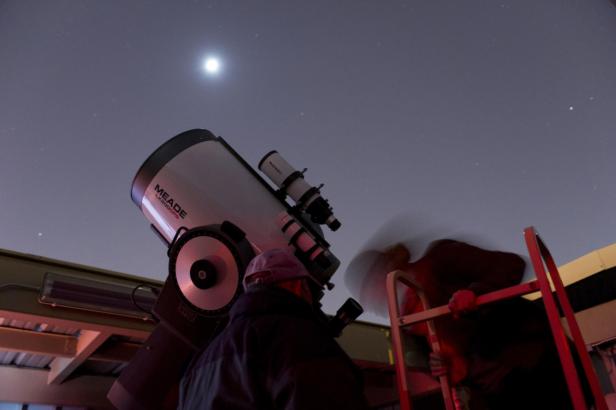
Georgia Tech Observatory in Atlanta, Georgia
Georgia Tech Observatory in Atlanta
Who knew? In the heart of Midtown Atlanta is a wonderful place to view the night sky. Georgia Tech hosts a free public night at the school's state-of-the-art observatory in midtown Atlanta almost every month. And according to Jim Sowell, the director of the Georgia Tech Observatory, for the best night sky viewing, go during a cloudless winter evening, because winter is actually a better time to stargaze than summer.
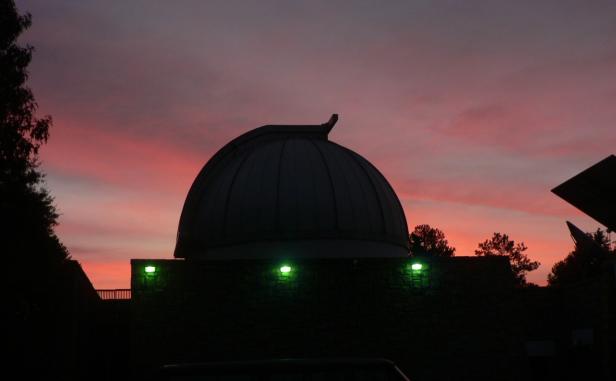
Fernbank Science Center in Decatur, Georgia
Fernbank Science Center in Decatur
Fernbank Science Center’s Ralph Buice Jr. Observatory houses the largest telescope in the Southeastern United States. The observatory offers free public observations on Thursday and Friday evenings when the sky is clear. There is an astronomer available to position the telescope and answer questions.
If you don't want to wait for the observation nights, you can view a simulated night sky and views of the entire universe at the Fernbank Science Center planetarium. There is a nominal fee to visit the planetarium.
Note: Fernbank Science Center is different than the Fernbank Museum of Natural History, where you can also see stars in the museum's Star Gallery and view one of three flat screens that tell all about the solar system.
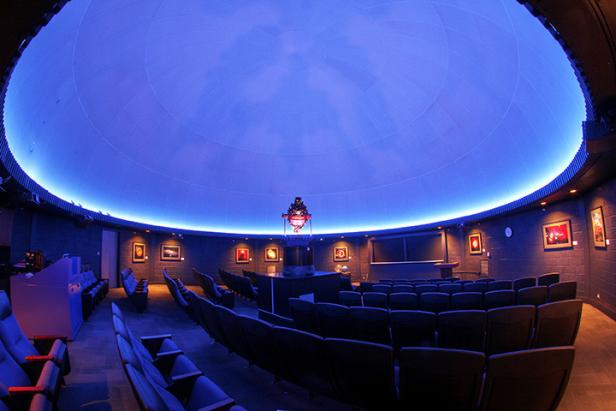
O. Wayne Rollins Planetarium in Young Harris, Georgia
Rollins Planetarium in Young Harris
The O. Wayne Rollins Planetarium at Young Harris College is a 104-seat, 40-foot dome theatre that has shows for school groups as well as public gatherings. Public shows are held on select Friday evenings, and guests are encouraged to come early as no late seating is permitted. There is a nominal fee for the planetarium.
The school also has an observatory that is located at Brasstown Bald, the tallest peak in Georgia. Next to the 15-foot dome that encapsulates the massive telescope are outdoor piers where you can mount your own telescope for viewing the sky.
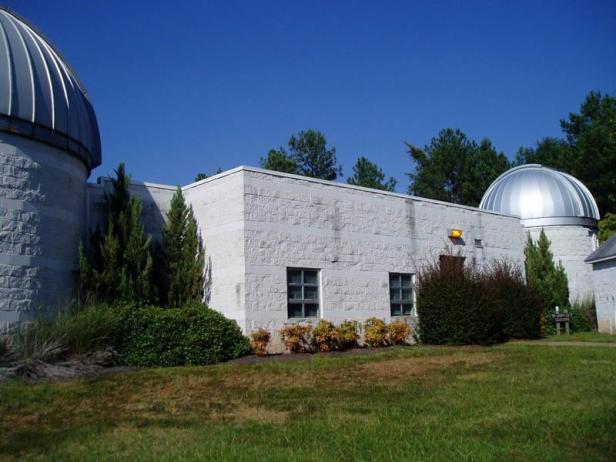
Hard Labor Creek Observatory in Rutledge, Georgia
Georgia State University Observatory in Rutledge
Visitors can attend a free monthly open house at the Georgia State University's observatory at Hard Labor Creek State Park in Rutledge just east of Atlanta. The Observatory is open to the public one Saturday per month from March through October. No reservations are required, but larger groups should schedule their visit at least one week prior to the open house with the GSU Department of Physics and Astronomy.
Know before you go: the observatory at Hard Labor Creek State Park is is a working scientific laboratory, so there is no heat, bathrooms or refreshments.
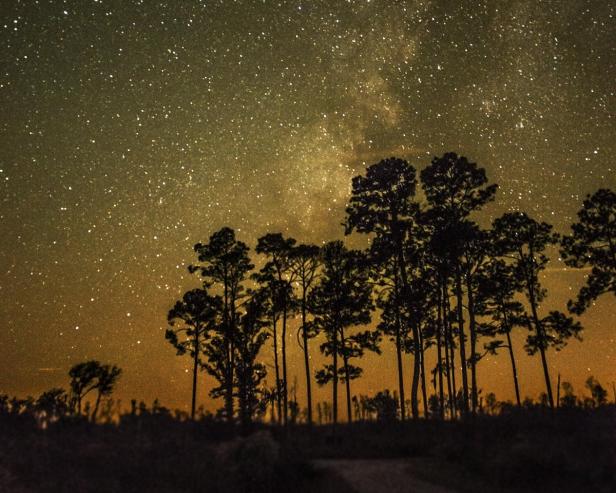
Night sky at Stephen C. Foster State Park in Fargo, Georgia
Stephen C. Foster State Park in Fargo
One of the Georgia State Parks hidden gems, Stephen C. Foster State Park is located in the Okefenokee National Wildlife Refuge and one of America’s largest blackwater swamps. By day, enjoy wildlife that includes quite a few alligators. At night, this 402,00-acre refuge becomes one of the darkest places in the Southeast, making it perfect for stargazing.
In fact, Stephen C. Foster State Park is a certified dark sky park by the International Dark Sky Association. For the best night viewing, plan to visit during a new moon, and ask about ranger-led night programs. The park is one of our favorite weekend getaways in Georgia.
Solar System Walking Tour in Gainesville
If heading out at night is not your thing, then how about a daytime walking tour of the night sky? Take a 1.8-mile walk around beautiful Downtown Gainesville to view a scale model of the solar system. On your celestial journey, you'll visit the downtown square, Rock Creek Park, Rock Creek Greenway, Ivey Terrace Park, Wilshire Trails Park and Longwood Park.
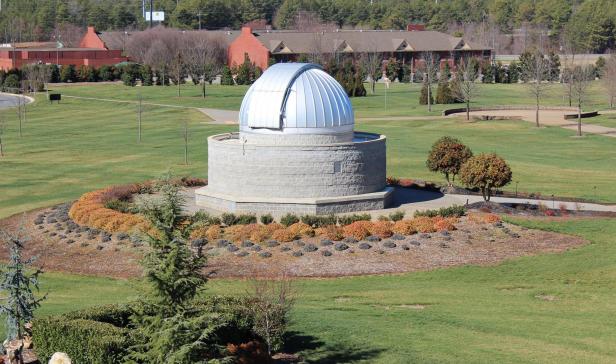
Tellus Science Museum in Cartersville, Georgia
More Places to See Stars in Georgia
Coca-Cola Space Science Center in Columbus
George E. Coleman, Sr. Planetarium in Dahlonega
Mark Smith Planetarium at the Museum of Arts & Sciences in Macon
Natural History Museum, Georgia College & State University in Milledgeville
Sandy Creek Nature Center in Athens
Tellus Science Museum in Cartersville
Wetherbee Planetarium at Thronateeska Heritage Center in Albany
